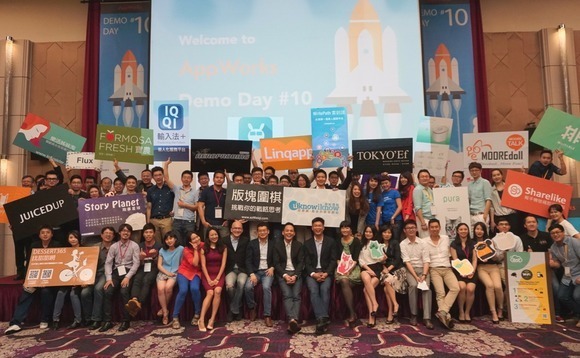
Taiwan VC: Marginal gains

Taiwan’s government has announced a slew of measures to encourage global venture capital funds to invest in local start-ups. Is it doing enough to create a robust VC ecosystem?
Sequoia Capital's re-engagement with Taiwan reflects a broader revival in VC activity - the island's technology start-ups are increasingly drawing attention from global investors.
Last year, Sequoia committed $6 million to Appier, a Taipei-based company that applies artificial intelligence to advertising. Last month, it joined a $9 million round for online design marketplace Pinkoi, and then in the last fortnight it participated in Appier's $23 million Series B. Singapore's UOB Venture Management, Japan's Jafco, Silicon Valley-based TransLink Capital, and Taiwan-based MediaTek Ventures also featured.
The robust activity is in line with the Taiwan government's first serious effort to create an effective start-up ecosystem. It wants to reduce regulation, provide greater access to early-stage capital, attract global VC funds and establish physical clusters for start-ups. This is intended to help recalibrate an economy still dependent on a manufacturing sector that is losing its competitiveness. But will the effort work?
"The impact is still marginal," says Joseph Chan, a partner at local accelerator AppWorks. "Taiwan has a lot of private capital but it isn't necessarily being put into start-ups. The main issue is that capital market regulations are not friendly to new industries. Start-ups can only go for IPOs if they can show a track record of profitability. And LPs won't invest unless they see better returns through exits."
Loss of interest
In the 1980s and 1990s, there was ample VC funding in Taiwan from multiple sources. Large PC makers were actively investing so independent VC players were willing to do the same, backing a string of local start-ups. Taiwan was even compared to Silicon Valley and Israel as a leading global technology hub.
However, as the ecosystem matured, more VC investors moved to later-stage and pre-IPO investments, chiefly in hardware and semiconductors. Investment dropped from $74 million in 2010 to just $8 million in 2012. When the world moved on to the internet technology in 2010, Taiwan's start-ups got left behind.
AppWorks, which is modelled after Y Combinator, was set up in 2010. It raised debut $11 million fund two years later and closed its second fund at $50 million in March. LPs include the National Development Council's (NDC) National Development Fund (NDF), which put in $13 million.
This was part of the HeadStart Taiwan Project launched by the NDC, in order to boost early-stage investments in the island. The NDF agreed to commit up to $84 million to four independent VC funds - AppWorks, plus US-based 500 Startups, Translink, and a joint venture fund run by the Battelle Memorial Institute's investment unit 360ip and Taiwan's Industrial Technology Investment Corporation.
Venture capital is gaining momentum again, supported by corporate VC funds as well as independent players, although the latter are catching up. Local start-ups received $219 million across 13 disclosed deals in 2014, the highest level in six years, although GIC Private's investment in KKBOX accounted for nearly half of that. So far this year, there have been seven disclosed investments worth a collective $94 million, compared to $88 million for 15 deals in 2013 as a whole, according to AVCJ Research.
"What NDF is doing is pretty smart. They are boosting the VC ecosystem because one of the key challenges facing local funds is the high cost of capital," says one Taiwan corporate VC. "It is difficult for VC firms to raise money with a 10-year fund life - it's usually 5-7 years - and that makes it impossible to invest in early-stage companies because it takes 4-5 years for a start-up to generate revenue. As a result, a lot of capital has focused on later-stage deals, where there is less risk and it is easier to get returns."
Rui Ma, Greater China partners at 500 Startups, echoes this view. With three local staff to help source deals, the GP helps build links between Taiwan entrepreneurs and Silicon Valley mentors. It also provides venture capital education in local universities, simply because the local investment infrastructure isn't ready yet.
"Seed investing is relatively new in Taiwan and you need a lot of talented people taking part," Ma says. "That's why we launched 500 Rookies program to coach university students. When they complete the training they can become the pipeline of talent for us and other VC firms."
Continued momentum?
While the government is expected to continue supporting independent VC funds, the NDF hasn't made any new investments since the first half of this year. It has also shifted its focus to financial technology and culture-related businesses.
There is an irony to this. The industry is highly regulated, with the government saying it will only allow traditional banks to develop products such as peer-to-peer (P2P) online lending platforms. Its justification is that the disruptive influence of online finance will leave many current banking employees with jobless. It is an attitude that puzzles VC industry participants.
"The bottleneck is whether these people can put money into the right fund, sector and company. Many of them are coming from the old era," says Lucas Wang, CEO of local accelerator TMI. "I am not saying they are inexperienced or unsuccessful, but I don't think they can fully catch up with the new internet generation, such as the internet-of-things or fintech."
It will take time for the government to adapt to the new internet world and Paul Yang, chairman of CDIB Capital, warns venture capital investors that they can't stand around waiting. CDIB Capital, a PE unit of China Development Financial, now manages three venture capital funds in Taiwan, covering technology, media and telecom, healthcare, and culture. They will be joined by a late-stage VC fund that will target precision manufacturing such as drones, robotics and green technology. It will seek third-party capital.
"Taiwan VC firms can't just rely on local money, they have to raise it globally, which means proper governance and institutionalized practices. You also have to be specialized, targeting different sectors and stages," says Yang. "And stay away from projects with ties to politics because you won't get good returns."
Latest News
Asian GPs slow implementation of ESG policies - survey
Asia-based private equity firms are assigning more dedicated resources to environment, social, and governance (ESG) programmes, but policy changes have slowed in the past 12 months, in part due to concerns raised internally and by LPs, according to a...
Singapore fintech start-up LXA gets $10m seed round
New Enterprise Associates (NEA) has led a USD 10m seed round for Singapore’s LXA, a financial technology start-up launched by a former Asia senior executive at The Blackstone Group.
India's InCred announces $60m round, claims unicorn status
Indian non-bank lender InCred Financial Services said it has received INR 5bn (USD 60m) at a valuation of at least USD 1bn from unnamed investors including “a global private equity fund.”
Insight leads $50m round for Australia's Roller
Insight Partners has led a USD 50m round for Australia’s Roller, a venue management software provider specializing in family fun parks.






